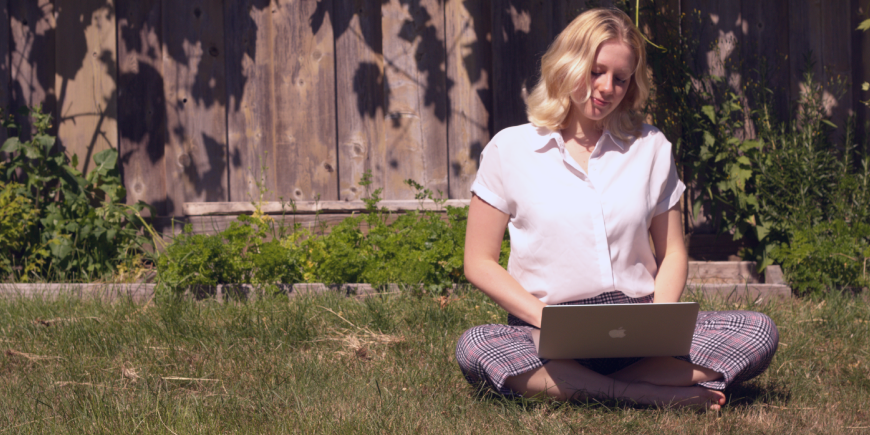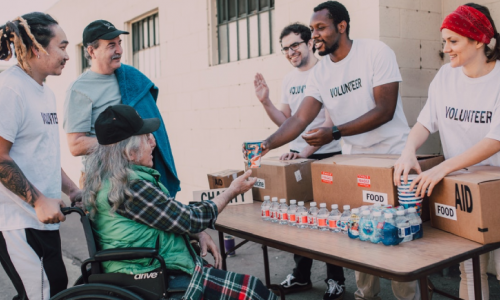
My role as a Student Obesity Medicine Assistant over the past eight months has brought me many new experiences and skillsets, all of which I will graciously carry on to future ventures in the workplace. I definitely anticipated gaining knowledge that would be applicable to future work opportunities and upcoming courses at SFU.
However, there have been outcomes from my two co-op terms with the Obesity Medicine and Diabetes Institute that I did not predict. What I did not expect was the amount of knowledge that would be directly applicable to my personal development, especially during a pandemic. Through my Co-op term in the past 8 months, I have begun to develop a toolbelt of strategies pertaining to improvement and maintenance of my personal health.
Physical Health
We all know we should move. We are all aware that physical activity is beneficial. On top of this, we all know that exercise is more important now than ever. Does that mean it’s easy? No.
For some, exercising is second nature and comes effortlessly. Unfortunately, that is not the case for everyone. When we first went into lockdown, my workout regimen fell by the wayside.
Locking down in March and starting a full-time job in May, I worried that I would never get it back. Little did I know that I was stepping into a workplace that would not only foster an environment of being collectively health-focused, but also one that teaches concrete strategies to its patients.
A large component of my role within the clinic has been to help manage sessions that are run daily, which we refer to as group medical visits. These were previously held in person but have been hosted over Zoom for the past ten months (I don’t need to explain why). These visits vary in their content, but each module and session are largely focused on aspects of different health behaviours. Much to my own benefit, one of these is a 4-week module called Getting Active 101.
This course informs patients on the physical and psychological benefits and outcomes of exercise, it teaches exercise principles of aerobic and resistance training, and encourages tangible self-reflection. As someone who is completing a kinesiology minor and is quite familiar with a lot of this subject matter, it may come as a surprise that I gained so much from these sessions. The tips I learned focused more on simply moving than on exercising. My favourite of which was using the Pomodoro Technique during work. This technique consists of working for 25 minutes, then taking 5 minutes to move around, stretch, walk, etc. By the end of the day my body would be much less stiff as a result of frequently getting up to move, something that the clinic emphasized to patients. Upon reflection, it has become clear to me how important having accessible information in one place can be. In addition to this, it enforces the value of repetition in learning, and especially in adopting behaviours.
Mental Health
In the year 2021, I don’t need to tell anyone that mental health is a pertinent issue. A lot of us have struggled with mental health in typical settings, so it is not overly shocking that sudden isolation can exacerbate existing struggles. Our current climate in conjunction with working full-time from home has the potential to bring new challenges to light.
As I mentioned, the nature of our group medical visits involves covering many aspects of healthy living. Included in these variations are a couple of ongoing mental health sessions that I have had the privilege of sitting in on. One of these modules is called Stress Management and is based on the Mayo Clinic Stress Free Living Program. Stress Management explores root causes of destructive stress, how it causes the brain to function, consequences of chronic stress, strategies to reduce negativity, the use of joyful attention to cultivate gratitude, and the importance of practicing self-compassion.
There is also a course titled Living Life to the Full, which is an eight-week Cognitive Behavioral Therapy program that corroborates with Canadian Mental Health Association. It’s focus is on CBT principles and providing tangible skillsets to deal with distorted and destructive thinking.
There are also modules aimed toward both anxiety and food addiction, as well as special topic sessions on depression, binge eating, sleep hygiene, self-esteem, and body image.
Everything that I have mentioned is of a high level of interest to me, so I knew that I would enjoy these sessions and gain a lot of knowledge from them. However, I did not realize how frequently I would end up relating back to the strategies I have learned throughout these courses. One of the strategies that has helped me the most is something they refer to as ‘chunking it down’. Whenever you have an overwhelming stressor that feels unmanageable chunk it down into realistic, attainable pieces, and it begins to feel far less daunting. Additionally, because I could feel these strategies improving my own mental health, in turn this improved my work at the clinic. There is a lot of value in knowing that what you are working toward is impactful. I have felt confident in knowing that these teachings work for me, and thus likely are beneficial for patients.
Integrating and Implementing
You may be thinking, “This information is great in theory, but how do you apply it?” This is where ACT comes in. ACT stands for Acceptance and Commitment Therapy, which is a psychological framework targeted toward behaviour change. It has a lot of overlapping concepts with CBT (Cognitive Behavioural Therapy) but is more humanistic and value-focused in its approach. Rather than attempting to distinguish between correct and distorted thoughts, it aims to decide whether a thought moves us towards or away from our core values; This concept is referred to as the Choice Point Model.
During the span of my two terms at the Obesity Medicine and Diabetes Institute, a new module was introduced that utilizes ACT. It has the ironic title ‘Healthy Habits Suck’ and is run by a psychologist named Dr. Dayna Lee-Baggley, who wrote a book of the same name (which I may have bought myself as an early Christmas present).
Dr. Lee-Baggley uses ACT to provide techniques to not only learn about healthy behaviours but apply and maintain them. These techniques include the Choice Point Model, shaping by using 90% goals, behavioural self-assessments, a variety of mindfulness exercises, and more. As a clinic, we got the privilege of having her run eight weeks of sessions, as well as a full day workshop for staff, teaching us how to utilize elements of Acceptance and Commitment Therapy in patient interactions.
In this workshop we practiced using the Choice Point Model in personal scenarios, something I fell everyone could benefit from. This strategy is used when facing any decision, even ones that are very minor and day-to-day. First you need to know what your core values are, then you can make a decision based on which outcome will bring you toward your values. I’ll give you a personal example. Sometimes I will be toiling with the decision of whether or not to go for a hike, maybe I’m feeling tired or lazy, so I’ll use the Choice Point Model. One of my core values is to be kind and gentle toward my loved ones. I know that when I exercise my mood is boosted and I am more likely act with kindness. Therefore, I realize that although I’m tired, getting out for a hike would be what Dr. Lee-Baggley calls a ‘toward move’. Of course, sometimes I’ll know a hike will benefit me, but still choose a nap, and that’s okay. The goal is to identify the behaviours that serve you and work toward living a more value-based life.
All Co-op positions are going to be very different with regard to your role in the organization, as well as the knowledge you gain. With that being said, I feel confident in saying that any position you end up in will present you with opportunities for growth on a personal level. One of the most important takeaways from my time at the Obesity Medicine and Diabetes Institute is to take full advantage of wealth of information around you and apply what you can to your own trajectory.
















